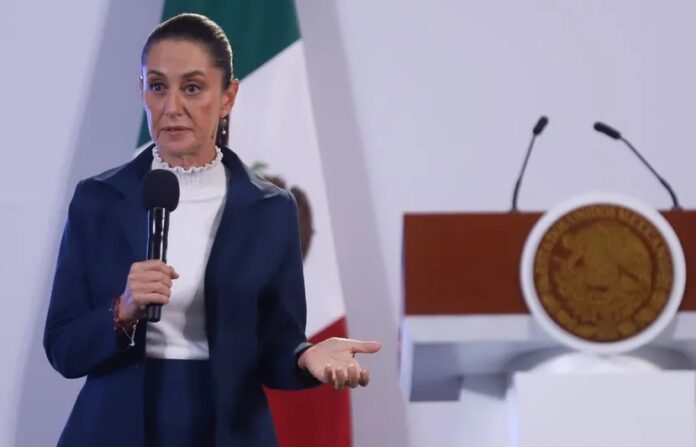The constitutional supremacy reform in Mexico is a contentious issue that has sparked debate among politicians, lawyers, and civil organizations. The ruling party Morena has promoted this amendment to avoid what it considers “political activism” by judges who have previously invalidated reforms approved by Congress.
President Claudia Sheinbaum defended the initiative, stating that it formalizes existing principles in the Amparo Law without introducing new ones. However, critics argue that the reform undermines the separation of powers and concentrates authority in one person or institution.
The proposed changes to articles 105 and 107 of the Constitution aim to make legislation such as the Judicial Branch reform and future amendments unchallengeable by the Supreme Court of Justice of the Nation (SCJN). The reforms also stipulate that any processes or appeals currently underway to challenge these laws will be dismissed without being considered.
The implications of this amendment are significant. Constitutional lawyer Miguel Carbonell warned that it would block the path of protection and leave citizens without tools to question changes that could affect them. On the other hand, Morena’s Ricardo Monreal sees the reform as a measure to protect the rule of law by reaffirming constitutional supremacy.
Deputy Ruth Maricela Silva Andraca of the PVEM believes that the reform guarantees legal certainty once the people’s will is enshrined in the Constitution. However, others argue that it would deceive citizens by depriving them of their legitimate means to defend themselves against abuse and arbitrariness.
The PRI’s César Alejandro Domínguez criticized the lack of technical-legal basis for the reform, which he believes undermines the fundamental principles of the 1917 Constitution. The PAN Senate group accused the government of consolidating an authoritarian regime by undermining the constitutional and democratic system.
In conclusion, the constitutional supremacy reform in Mexico has been met with both support and criticism from various sectors. While some see it as a necessary measure to protect the rule of law and prevent judicial intervention, others argue that it would undermine human rights and limit citizens’ ability to challenge changes that affect them. The debate highlights the complexities and challenges facing Mexico’s democratic system.
Source: CNN






